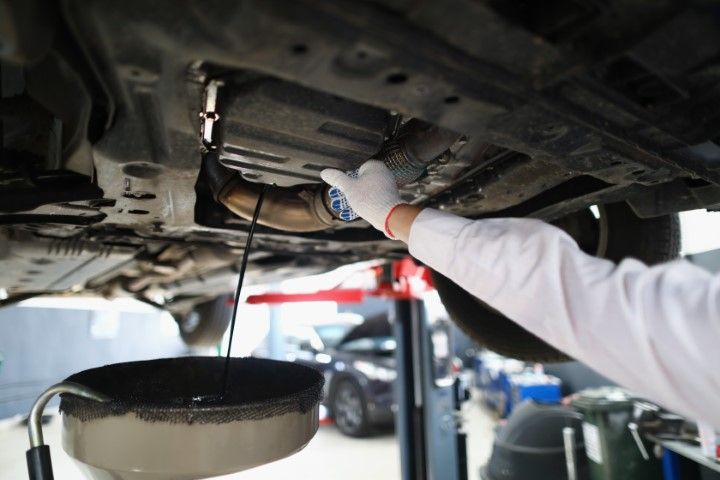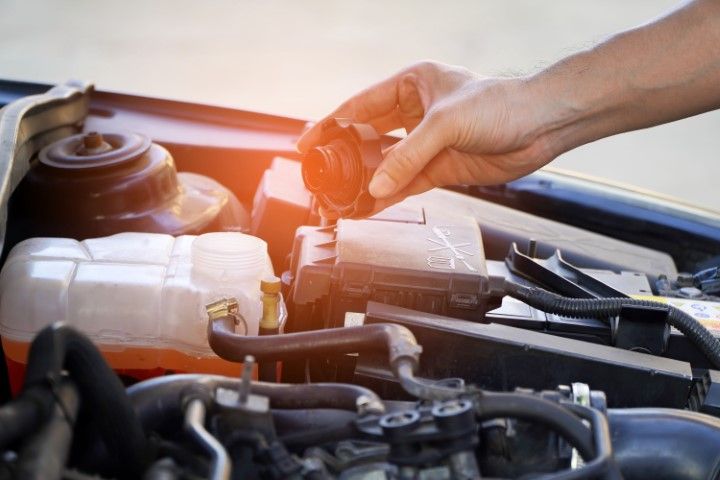Oil Change and Fluid Checks in Peabody MA
Regular maintenance is vital for keeping your vehicle running smoothly and efficiently. Among the most crucial aspects of this upkeep are oil changes and fluid checks. Ensuring your car receives timely service can prevent costly repairs and extend its lifespan. Keeping your vehicle’s oil and fluids in check is essential for its overall performance. Here’s why:
- Engine Health: Oil lubricates the engine, reducing friction and preventing wear. Over time, oil breaks down and loses its effectiveness, which can lead to engine damage. Regular oil changes ensure your engine stays well-lubricated, promoting better performance and longevity.
- Improved Fuel Efficiency: Fresh oil helps your engine run more smoothly, which can improve fuel efficiency. When the oil is dirty or low, the engine has to work harder, consuming more fuel. Regular oil changes can help you save money at the pump.
- Fluid Checks Enhance Safety: Aside from oil, your vehicle has several essential fluids, including coolant, brake fluid, transmission fluid, and power steering fluid. Regular checks of these fluids can identify potential problems before they escalate. For example, low brake fluid can lead to reduced braking performance, compromising your safety.
- Environmental Benefits: Proper maintenance helps reduce harmful emissions from your vehicle. When the engine runs efficiently with clean oil, it produces fewer pollutants, contributing to a healthier environment.
- Cost Savings: Neglecting oil changes and fluid checks can lead to significant repairs down the line. By staying on top of maintenance, you can avoid expensive fixes and keep your vehicle running well.

- Resale Value: If you plan to sell or trade your car in the future, a well-maintained vehicle will hold its value better. Keeping records of regular oil changes and fluid checks can be a selling point, showing potential buyers that you took good care of the car.
Regular oil changes and fluid checks are simple but essential practices that every car owner should prioritize. Our team is here to help you maintain your vehicle's health and performance. Don’t wait until it’s too late—schedule your
oil change and fluid check in Peabody, MA today! Our experienced technicians are ready to provide top-notch service and ensure your vehicle stays in great condition. Reach out to us now to book an appointment or to ask any questions about our services. Your car deserves the best care, and we are here to help!
How to Know When It's Time for an Oil Change: Signs to Watch For
Routine car maintenance is essential for keeping your vehicle running smoothly, and one of the most important aspects of that maintenance is regular oil changes. Oil plays a vital role in lubricating the engine's components, reducing friction, and preventing overheating. Over time, however, oil can break down and become less effective, leading to potential damage to your engine if not addressed in a timely manner. Knowing when to change your car's oil can extend the life of your vehicle and ensure it continues to run efficiently. But how do you know when it’s time for an oil change? There are several signs to watch for that can help you stay on top of this critical task.

Regular oil changes are crucial for the longevity and performance of your car. Ignoring the signs that it’s time for an oil change can lead to expensive engine repairs and reduced fuel efficiency. In addition to oil changes, staying on top of other essential maintenance tasks like battery replacement and brake repair and replacement is key to keeping your vehicle running smoothly. If you’ve noticed any of the signs mentioned above or if it’s simply time based on mileage or time, don’t delay. Contact us today to schedule your next oil change, battery replacement, or brake repair and replacement service. Our expert technicians are here to ensure your vehicle stays in top shape, giving you peace of mind and a smooth ride.
Fluid Maintenance: Key Fluids Your Car Needs for Optimal Performance
Owning a car involves more than just driving from one place to another; it requires regular care to keep everything running smoothly. One of the most essential aspects of vehicle upkeep is fluid maintenance. Just like our bodies need water and nutrients, cars rely on various fluids to perform at their best. Without proper maintenance, these fluids can break down over time, leading to reduced performance, costly repairs, or even serious mechanical issues.
Regular fluid maintenance, paired with timely battery replacement as well as
brake repair and replacement, ensures your car stays in good shape, runs efficiently, and avoids major problems down the road. In this guide, we'll explore the key fluids your car needs, what each one does, and why they are so important for your vehicle's health and performance.

Regular fluid maintenance is key to keeping your vehicle running efficiently and avoiding unexpected breakdowns or costly repairs. Whether you need a simple oil change, a brake fluid flush, or a full vehicle check-up, we’re here to help. Our team of experts is ready to ensure that all your car’s vital fluids are in top condition for optimal performance. Don’t wait until it’s too late—schedule your fluid maintenance service today and enjoy peace of mind on the road. Contact us now for a comprehensive fluid check and maintenance service to keep your vehicle running smoothly for miles to come!